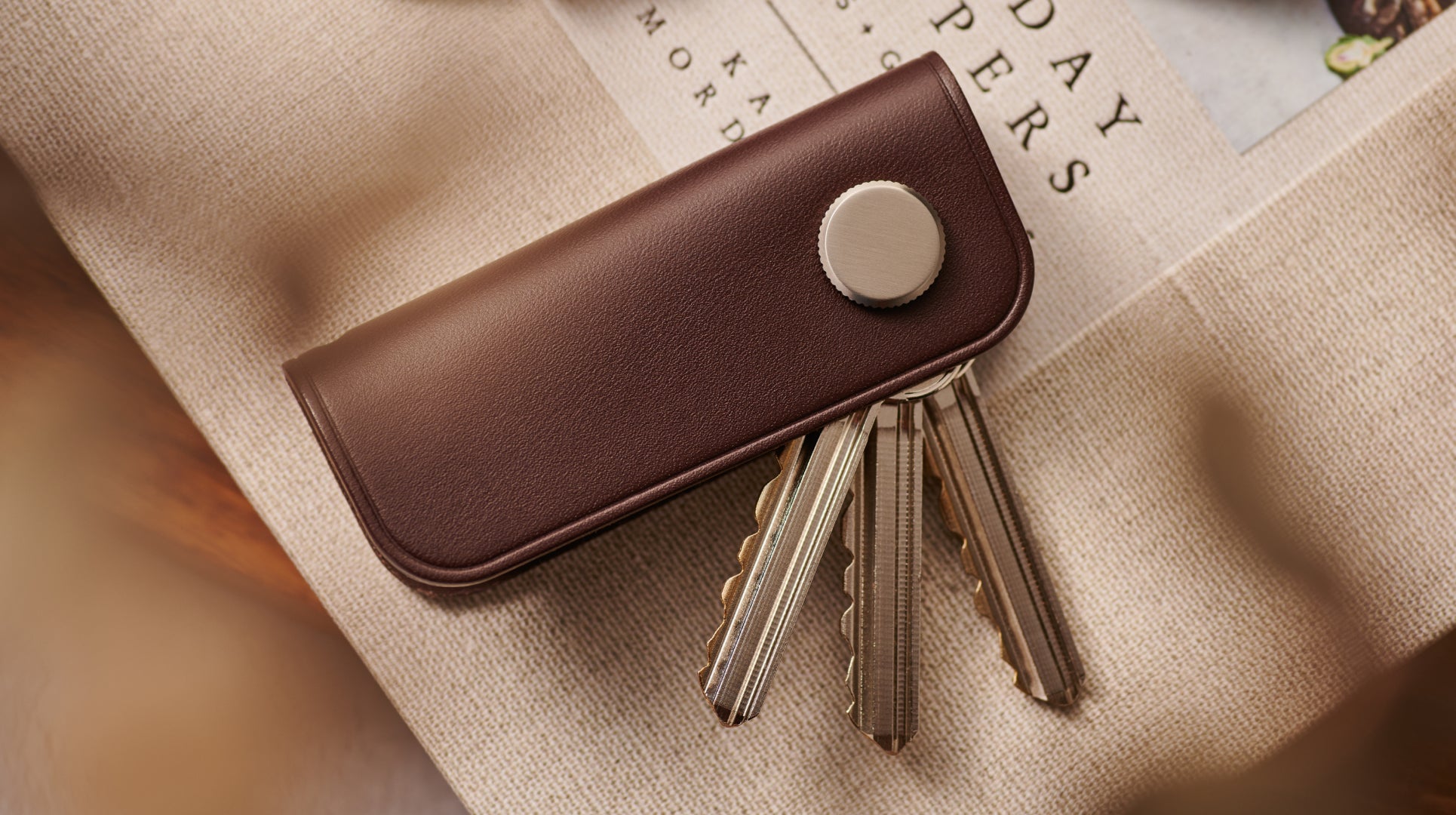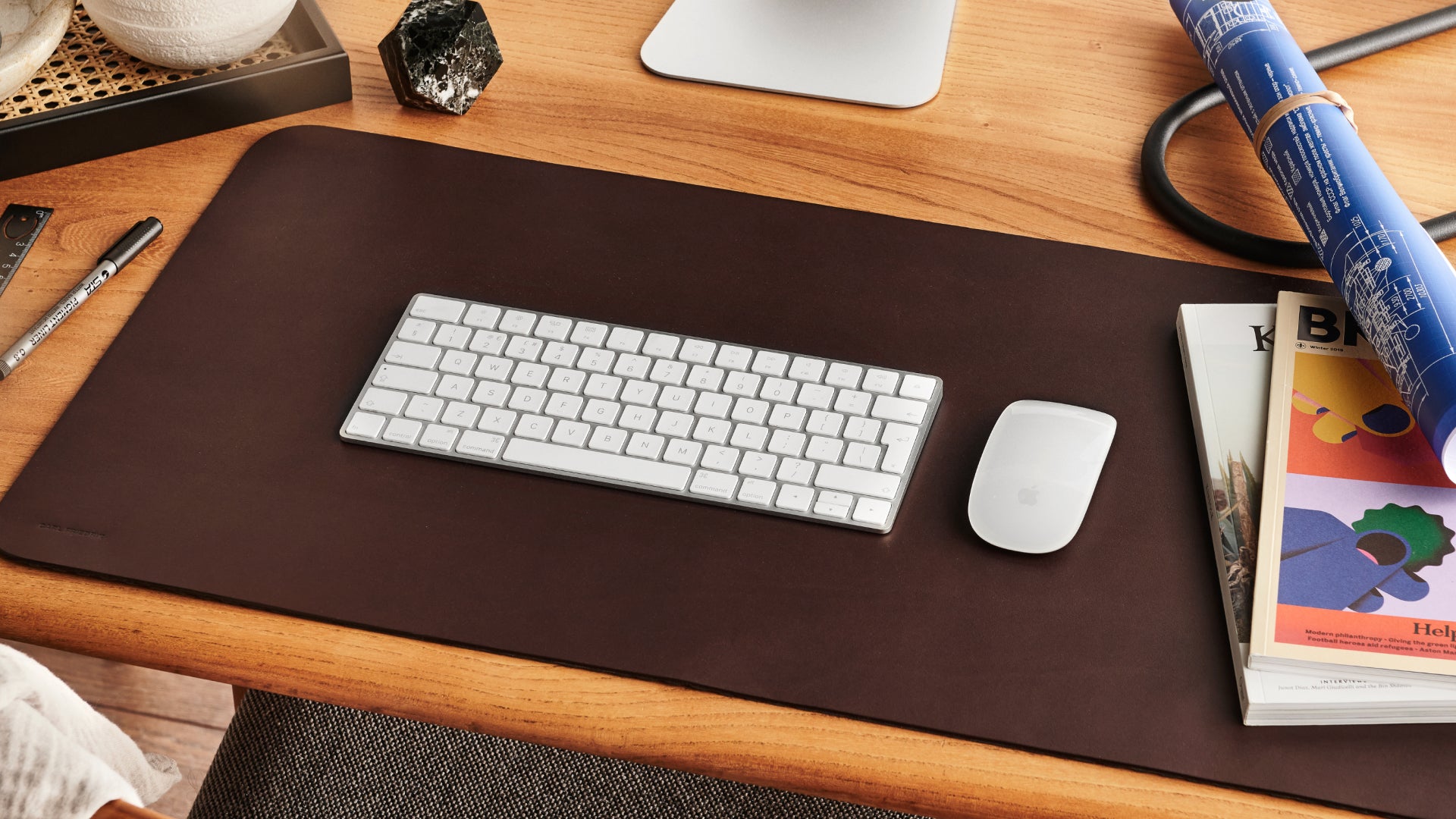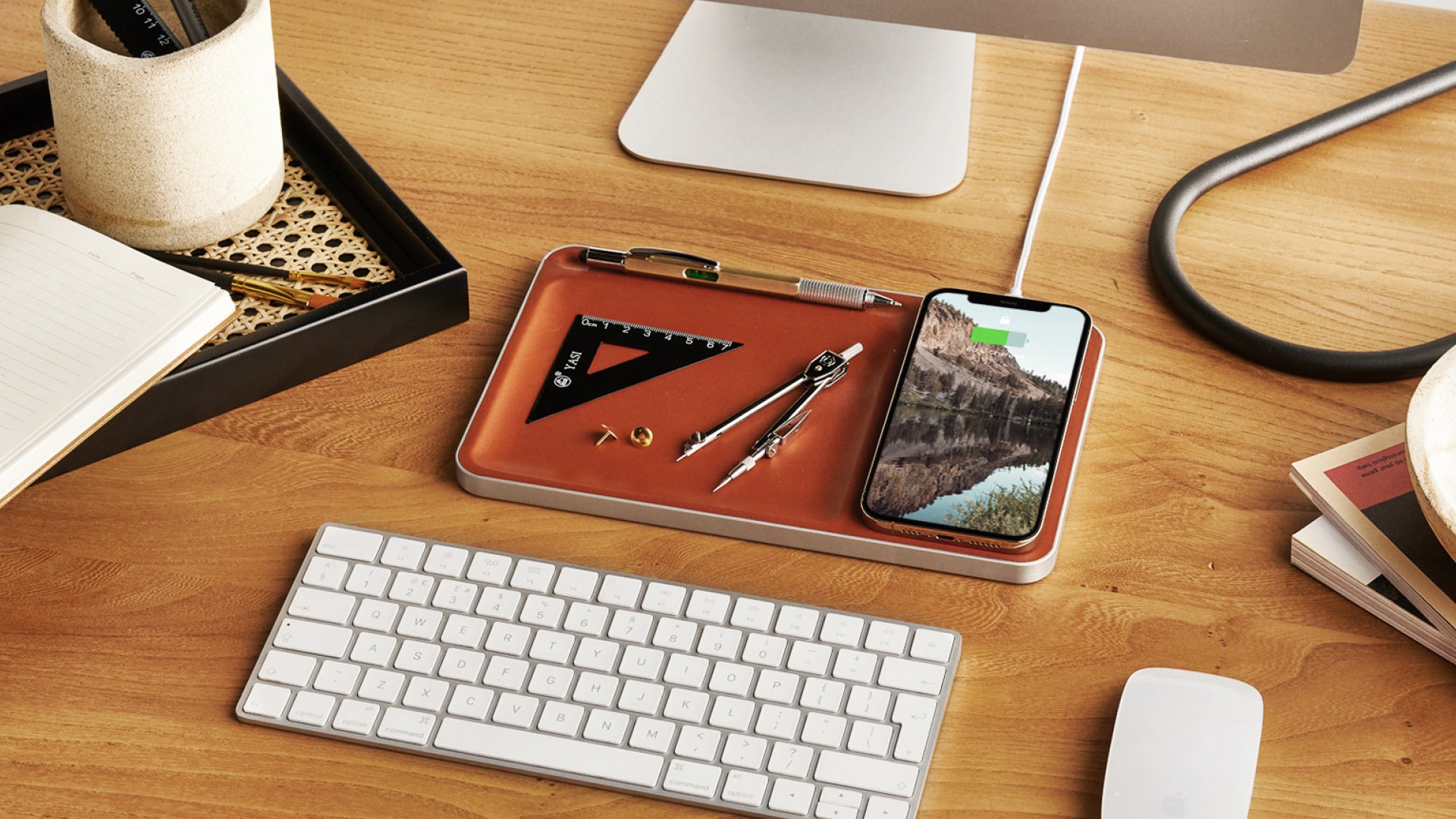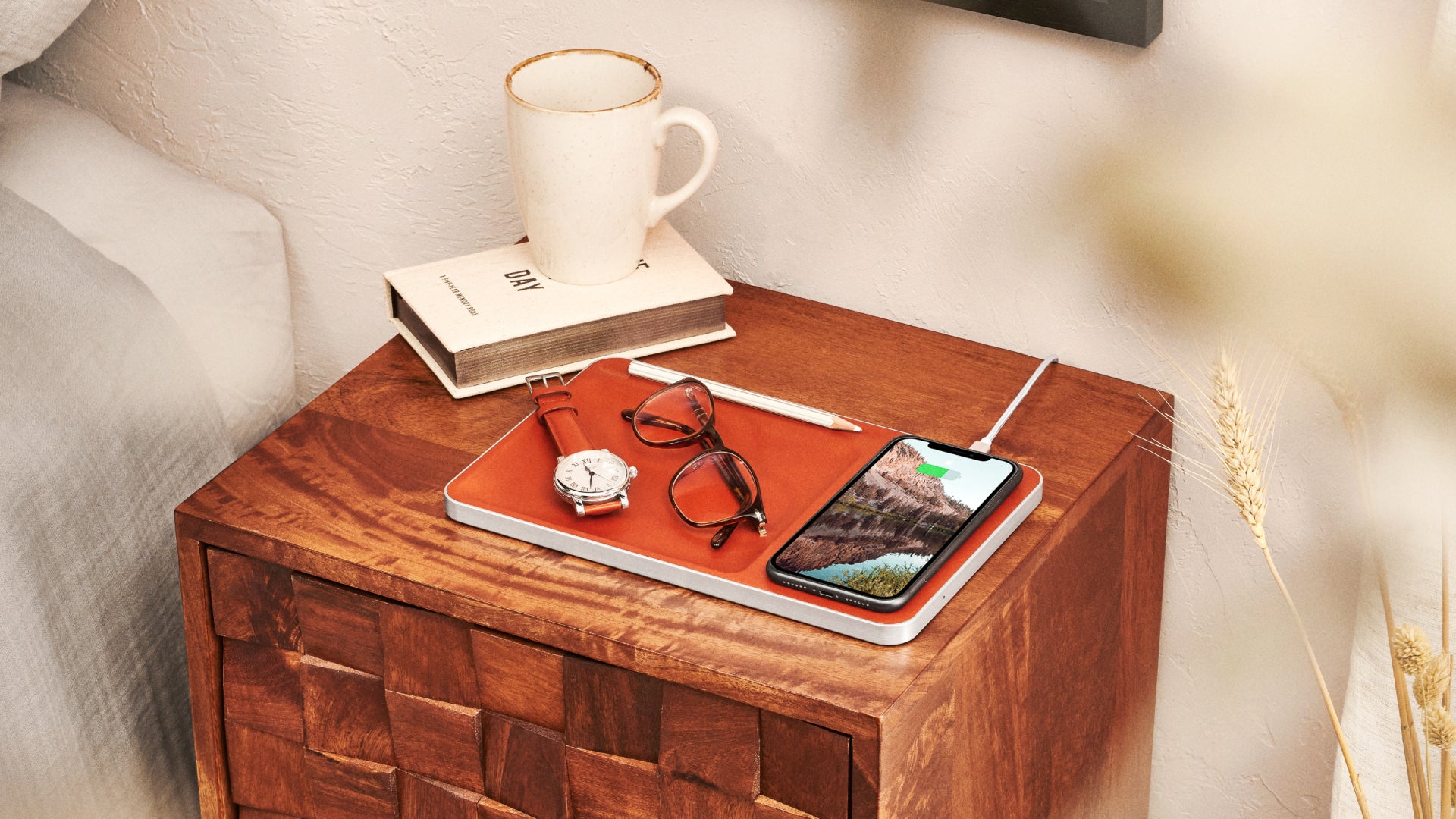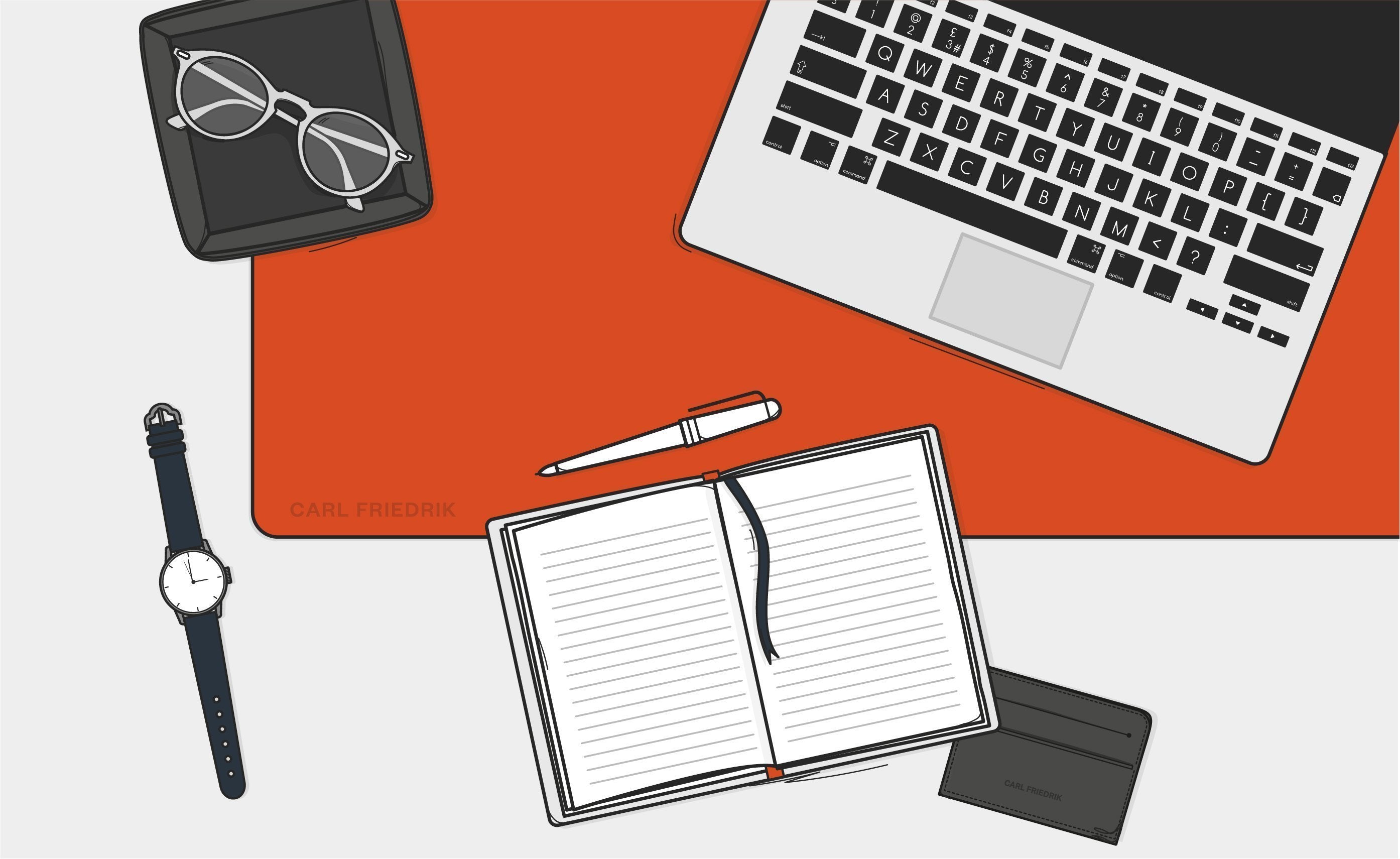In the last few months, working from home has been revolutionised. More people are working from home than ever before, and we are seeing a shift in the collective mindset of how we work. However, working from home successfully can be a challenge at times both professionally and personally.
As a company that aims to support the modern professional, we wanted to offer some support about adapting to the new office, the home. In all of our research, we’ve found that the key to productivity is a positive mindset, and that comes from little changes that make a big difference.
Organising your home office
The first of these little changes is organisation: by organising a workspace in your home, you begin to treat your home office space with professionalism.
The first facet of this is establishing an ‘office’ environment. James Clear talks about how vital this is in his book Atomic Habits, creating separate spaces for separate purposes cultivates good habits, which lead to better working and wellbeing.
To clarify, this doesn’t have to be a separate room or designated ‘office’, this just has to be a separate work area. Of course a study or specific desk is great, but even assigning a particular end of the dinner table as your ‘office’ will help distinguish work space and leisure space.
Decoration is also useful in establishing this kind of environment, if your space feels professional, you’ll treat it that way; aesthetics are at the heart of this.
Home office organisation tips
- Use organisational materials or home office accessories, i.e. files, pen holders, mouse pads, valet trays for workday particulars, etc. Additionally, a desk mat can declutter your setup while bringing an air of 1950s Mad Men professionalism into the home office.
- Keeping your desk organised and uncluttered is great for productivity: it helps to order your work and clear your mind.
- Only have things on your desk that you would in the office: keep work and leisure time separate, even if it’s a book or a magazine you were reading on your break, leave it on the other side of the room.
Improving the ergonomics of your setup can also be invaluable in working from home. The term ‘ergonomics’ can seem daunting and complicated, but the practice is actually designed around simplicity and comfort. Try working for a day with your computer on top of a few books so the top of your screen is eye level, or maybe sit in another chair for a day, and see if you can feel a difference. If you do note a change in comfortability, look into investing in a better desk chair or a kickstand with a wireless keyboard to raise your screen if you’re working on a laptop.
Follow a work from home routine
Distinguishing work and leisure spaces is important to avoid an ‘always on the clock’ mentality - it helps you work better and enjoy your leisure time more! Obviously your environment compartmentalises this physically, but compartmentalising it mentally comes from keeping yourself somewhat disciplined with structure.
This isn’t as hard as it sounds, and the littlest changes of habits can go a long way. In introducing structure into your working week, here are some good places to start:
Setting a work from home schedule
Give yourself a ‘clock in’ and ‘clock out’ time, keep your work phone in another room or on Do Not Disturb outside of office hours. Plan and structure your day as you would a normal working day, including breaks and lunches.
Prepare a to-do list
Writing yourself a to-do list at the end of a working day for the next day is a good practice generally, but especially when working from home. If you write down what needs doing, you can mentally unload and relax more in your free time.
Coordinate with other members of the house
If you live with others, set boundaries and let them know about your routine changes, they’ll respect that and help action some of your organisational changes.
Prepare meals in advance
As fun and mindful as cooking can be, it’s quite easy to get lost in a culinary adventure and incidentally spend two hours cooking in the middle of your working day. Prepare your meals in batches if this is an issue, or continually eat small bites throughout the day that are less time consuming, let your evening meal be the showstopper.
Don't forget to take breaks
You would at work so why wouldn’t you at home? Especially if you’ve been feeling unproductive, there’s a temptation to spend all day at your desk waiting for productivity to arrive. Getting up and moving is relieving for body and mind; stretch your legs, clear your head, gather your thoughts.
Go outside
In a similar vein of ‘healthy body, healthy mind,’ get outside and breathe in some fresh air. Exercise increases blood flow, awareness, BDNF (brain-derived neurotrophic factor), and these all come together to boost your focus and cognitive abilities. Just getting outside is great to clear the head, but go for a run or a long walk if you can, see if a bit of exercise changes your productive output.
Get dressed
Old work habits are crucial to keep up, wear ‘work’ clothes to help keep you in the mindset. Some people find other habits helpful, our co-founder cycles to work usually, so he likes to take a quick cycle before starting work from home each day.
Stay connected while working remotely
An emerging predicament in remote working is maintaining personal office relations. It’s easy to feel disconnected and alienated from your colleagues through no fault of anyone. Talking exclusively through a screen with only one voice at a time in a video conference can become othering after a while.
So it might be a good idea to try talking to your colleagues separate from your work. This doesn’t have to be after hours or extensive in any way, but perhaps when working on an assignment together, you can take a break to catch-up on how they’ve been. Hosting virtual office drinks on a Friday when you would normally finish is another fun way to inject a bit of the social side back into working.
Moving from the social aspect to the professional, being heard in video conferencing meetings isn’t always straightforward. It can feel oddly exposing and it’s a lot easier to be conscious of how long you’ve been speaking for than it might normally, say if you were with someone in person you might be spurred on by their body language as affirmation, but this doesn’t translate remotely.
For this problem, it’s important to realise that everyone’s in the same position, so there isn’t any need to feel self conscious about speaking up. Make sure your voice and input is heard, collaboration is invariably invaluable.
Part of this comes down to checking in with your colleagues. Correspond with them readily, updating them on your projects and progress, it will make your remote meetings feel less uncertain and maintain connectivity.
How to be productive working from home
The most important thing in being productive is to not punish yourself when you lapse. Increasing productivity is not a quick fix, nor is it a permanent state, especially when working from home. So, similarly to following a routine and getting into a professional mindset, a lot of it comes down to habits and trying to make small adjustments.
Here are some helpful habits that might unlock a greater efficiency in you so that you can end each day happy with what you managed to get done:
Prioritise your workload
At the beginning of your day spend a few minutes picking out one, two or three Most Important Tasks (MIPs) that absolutely need to get done that day and plan backwards from there.
Avoid Social Media
Multitasking undermines concentration, it can grab attention and sap focus, social media is a prime source of detrimental multitasking. Try keeping your phone on Do Not Disturb and, if this is a particular issue, it is possible to download applications onto computers that disable access to designated websites for whatever period of time you allocate.
Make a distraction list
That being said, it is easy to get distracted, but don’t feel bad for becoming distracted, it’s natural. Almost like a to-do list, make a distraction list and add to it every time a distraction pops into your head, you can deal with them after your work.
Work in short bursts
Maximise quality over quantity, work in productive bursts and reward yourself with walking around and stretching out. Working efficiently like this will help with ordering your work into bitesize pieces, and improve your ability to…
Cultivate deep work
Deep work is a state of condensed concentration which Cal Newport outlines in his book ‘Deep Work: Rules for Focused Success in a Distracted World.’ If you’re interested, have a look into it online, but essentially it’s a focus on difficult, consuming tasks in scheduled, small bursts. For example, an hour or two of uninterrupted, concentrated work.
Get better at saying no
A yes man can become spread too thin too easily. Learning to say no is vital if you feel that you’re not excelling as much as you think you should be professionally. Focus your efforts and your efforts will pay dividends.
Summary
Working from home can be as much rewarding as it can be trying. Being productive and staying organised is often harder in a home environment, but the key to succeeding in your efforts is having a professional mindset. This comes from your home office setup, your mental routine, how you communicate with your colleagues, and how you focus your productivity.
If you can use your workspace and schedule to compartmentalise your work and leisure, being productive will be less of a challenge in the first place, but communicating well and working in a focused manner will maximise professional productivity as well as how much you can enjoy your down time. To paraphrase the adage, ‘Work hard, play hard,’ our working philosophy could be distilled as, ‘Work well, rest easy.’
P.S. As well as all of these guidelines, we’ve left 20 little WFH tips we’ve found helpful for organisation and productivity while working from home:
20 top work from home tips:
- Choose a dedicated work space
- Get up and stretch your legs every hour
- Keep up habits like wearing ‘work’ clothes
- Cultivate ‘deep work’ (look at how to be productive section)
- Start your day early
- Save calls for the afternoon
- Schedule breaks (and actually take them)
- Keep a distraction list (look at how to be productive section)
- Don’t look at screens in your breaks
- Get outside!
- Use the Eisenhower Matrix to help you prioritise your work
- Close unnecessary tabs on your laptop, keep your computer organised
- Plan out what you’ll be working on ahead of time
- Use laundry as a timer for your work
- Read “Atomic Habits” by James Clear (great book)
- Raise your laptop screen
- Stay off social media when working
- Ignore advice that doesn’t work for you (even ours)
- Get better at saying no
- Let down time be down time (work your regular hours and only those)





